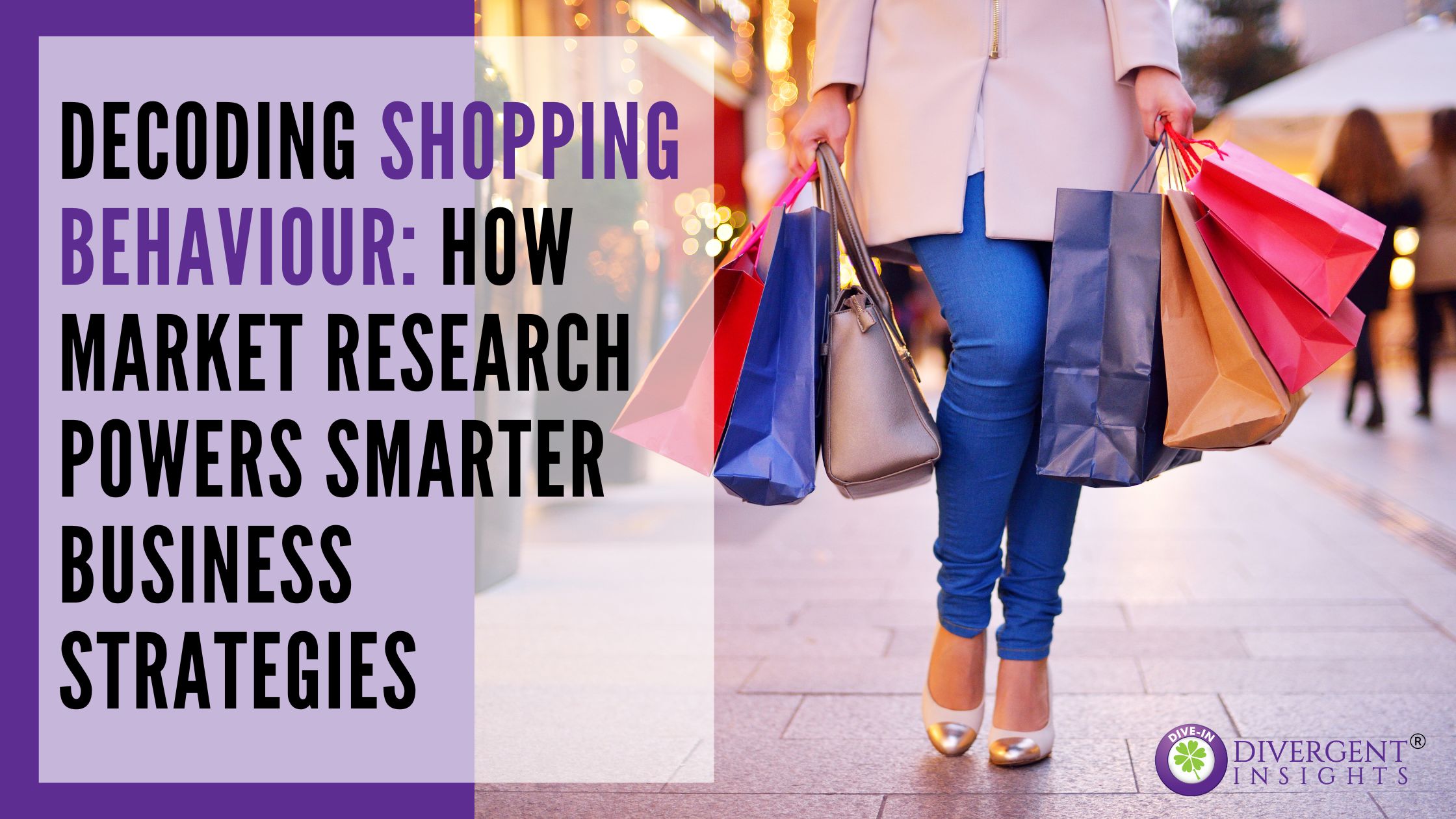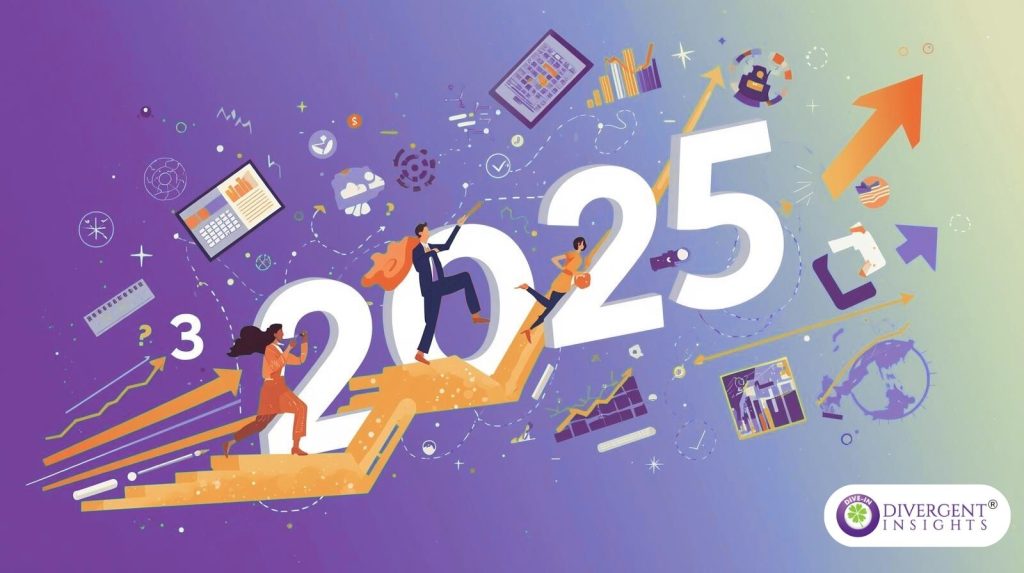
Over the years, I’ve seen the rhythm of consumer behavior evolve dramatically. Shopping cycles, once predictable and driven by occasion-based excitement, have now become intricate reflections of emotion, culture, and purpose. Today, people don’t simply buy — they express, connect, and align their choices with personal values.
In this dynamic environment, understanding why consumers buy has become just as important as knowing what they buy. Economic shifts, generational mindsets, and digital transformation are reshaping how people make decisions — often faster than businesses can adapt.
That’s where market research connects perception with performance — helping brands anticipate, not react, to changing motivations. At Divergent Insights, we turn intelligence into strategy through five key research steps that decode behaviour, forecast demand, and strengthen consumer connections.
The Value Equation Has Changed:
Consumers today are redefining value. They’re not just looking for the lowest price — they’re seeking products that justify their purchase through quality, purpose, and emotional relevance. Rising living costs across markets have triggered what I call a value reset.
Recent research indicates that over 80% of consumers are re-evaluating discretionary spending. But this isn’t a withdrawal from the market — it’s a shift toward conscious consumption. People are more selective, demanding transparency, and rewarding brands that offer genuine worth.
Market research plays a critical role in decoding this evolving mindset. By tracking consumer sentiment, monitoring purchase triggers, and mapping perception shifts, we can pinpoint the exact attributes that define value for each audience segment.
In several of our studies across Asia, we found that promotions tied to perceived utility — such as bundles, loyalty incentives, or experiential offers — outperform flat discounts. It’s not just about cheaper deals; it’s about smarter value.
Generations Shop Differently and Insights Make the Difference:
No two generations think alike when it comes to shopping. Their motivations, pressures, and influences differ dramatically — and so should the way brands communicate with them.
- Gen Z is cautious yet expressive, prioritizing authenticity, sustainability, and affordability. They research extensively and make emotionally driven choices.
- Millennials and Gen X balance family needs with convenience. They value efficiency, reliability, and consistent brand experiences.
- Boomers remain loyal traditionalists, preferring tactile store experiences and gifts that celebrate connection and memory.
These differences highlight why a one-size-fits-all marketing approach no longer works. Market research helps reveal the deeper emotional “why” behind these behavioural patterns.
At Divergent Insights, our generational behaviour studies and digital ethnography help brands design tailored campaigns — whether that means creator-led engagement for Gen Z or enhanced in-store service experiences for Boomers. The result? Precision empathy — connecting with every consumer on their terms, not ours.
The Digital Shift is Redefining Retail Behaviour:
The rise of digital commerce has reshaped the way consumers explore, evaluate, and engage with brands. Today’s shopper doesn’t distinguish between online and offline — they expect a seamless, trustworthy experience across both worlds.
From AI-driven recommendations to real-time reviews and social validation, every digital touchpoint influences buying decisions. In fact, our studies show that more than 60% of offline purchases now begin online, as consumers conduct pre-purchase research before walking into a store.
This makes consistent brand storytelling essential. Tools like path-to-purchase analytics, social listening, and digital behaviour tracking now sit at the core of research-driven marketing. They enable businesses to understand what inspires clicks, what causes hesitation, and what ultimately drives purchase confidence.
In a connected world, trust is the new currency of commerce, and research helps brands earn it — one interaction at a time.
From Insight to Impact:
The Power of Mystery Shopping: Understanding what consumers say is valuable. But understanding what they experience — that’s transformative.
Mystery shopping remains one of the most insightful tools in modern research. It captures real-world performance — how staff engage, how processes work, and how brand promises to hold up in practice.
At Divergent Insights, we use mystery shopping across physical and digital environments to help clients:
- Validate promotional effectiveness and staff communication.
- Benchmark service quality against competitors.
- Assess digital usability and checkout efficiency.
- Identify opportunities for training and process optimization.
This approach moves beyond data collection. It turns feedback into foresight — helping businesses fine-tune their operations to deliver consistent excellence at every consumer touchpoint.
Turning Insights into Strategy:
The consumer of 2025 is informed, value-driven, and emotionally aware. Success now depends on using research not as a retrospective tool but as a strategic compass for what lies ahead.
At Divergent Insights, we encourage clients to adopt three guiding principles:
- Insightful Analysis – Continuously monitor shifts in sentiment and emerging market dynamics.
- Agile Adaptation – Build flexibility into marketing, pricing, and channel strategies to respond to change.
- Experiential Excellence – Refine delivery and service quality through continuous CX evaluation and mystery audits.
By integrating these elements, market research evolves from being diagnostic to predictive and transformative — empowering brands to create trends rather than chase them.
Where Data Meets Human Behaviour
In my experience, data alone doesn’t create business success, human understanding does. Market research is at its most powerful when it translates numbers into narratives, insights into empathy, and foresight into strategy.
As consumer expectations grow more fluid and emotionally nuanced, the brands that listen deeply and act intelligently will lead the future of retail.
Because in the end, it’s not about short-term sales. It’s about long-term relationships built on trust, relevance, and experience.


